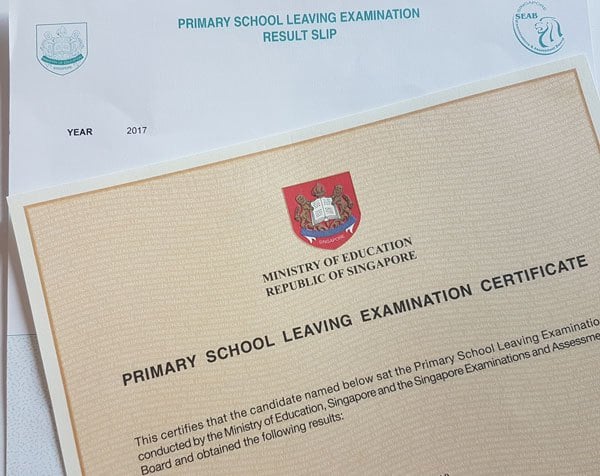Education
Guide For Primary School Leaving Examination (PSLE)

The Primary School Leaving Examination (PSLE) is a crucial milestone in the educational journey of students in Singapore. Designed to assess the academic abilities of primary school students, PSLE plays a significant role in determining their future educational paths. As a comprehensive national examination, PSLE aims to not only gauge students’ knowledge but also foster holistic development, character-building, and critical thinking skills. This article delves into the history, purpose, structure, impact, and ongoing reforms of the PSLE, shedding light on its importance and the evolving educational landscape in Singapore.
Historical Evolution of PSLE
The roots of PSLE trace back to the 1960s, during Singapore’s early years as an independent nation. It was introduced to address the need for a standardised assessment to identify talented students and allocate them to suitable secondary schools. Initially, PSLE comprised only four subjects: English, Mathematics, Science, and Mother Tongue Language (MTL). Over the years, the examination evolved in response to societal changes and educational developments, incorporating additional subjects and adjusting grading systems to ensure relevance and fairness.
Purpose and Objectives of PSLE
The primary purpose of PSLE is to evaluate the academic proficiency and overall preparedness of primary school students as they transition to secondary education. The examination aims to:
a) Measure Learning Outcomes: PSLE assesses the mastery of core subjects, such as English, Mathematics, Science, and MTL. The results reflect students’ understanding, application, and critical thinking abilities in these key areas.
b) Facilitate Secondary School Placement: Based on PSLE results, students are allocated to different secondary schools and academic streams that match their academic performance and aptitude.
c) Foster Character Development: The examination also values the development of soft skills, character traits, and positive values, which are vital for personal growth and contribution to society.
Structure of PSLE
The PSLE comprises two main components: written examinations and school-based assessments.
a) Written Examinations: Students are tested in four core subjects over a period of several days. The exams are usually held in October, and students are assessed based on their knowledge, problem-solving skills, and ability to apply concepts.
b) School-based Assessments (SBA): Besides the written examinations, the SBA component evaluates students’ performances throughout the year. It includes class tests, projects, and other assessments conducted by teachers.
Impact of PSLE on Students and Parents
The PSLE has a profound impact on students and their families. As the examination determines students’ educational pathways, the results can influence their future opportunities and choices. Many students feel immense pressure to perform well, leading to stress and anxiety. The competitive nature of the examination can also foster a “kiasu” (fear of losing out) culture among parents, who may resort to excessive academic drilling and tuition.
Critics and Challenges
Over the years, the PSLE has faced criticism and challenges. Some critics argue that the emphasis on academic grades overlooks students’ other talents and potential. The high-stakes nature of the examination can lead to an overemphasis on rote memorization and a lack of focus on nurturing creativity and critical thinking. Additionally, the examination may inadvertently contribute to inequality in the education system, Click Here for KNOW MORE resources and opportunities for academic support.
Ongoing Reforms and Future Directions
Acknowledging the concerns surrounding PSLE, the Singaporean government has initiated ongoing reforms to improve the examination and its impact on students’ well-being and learning experience. Some of the key reforms include:
a) Subject-Based Banding (SBB): Instead of a single T-score system, students are now graded using the SBB approach, which assesses their performance in each subject individually. This allows for more personalised educational pathways based on their strengths and interests.
b) Reduced Focus on T-scores: The emphasis on T-scores as the sole criterion for secondary school placement has been diminished, giving more weight to students’ overall performance and character development.
c) Holistic Education: Schools now place greater emphasis on holistic education, nurturing students’ social, emotional, and artistic abilities alongside their academic achievements.
d) Updated Syllabus: The syllabus and assessment methods have been revised to promote critical thinking, problem-solving, and real-world application of knowledge.
Conclusion
The Primary School Leaving Examination (PSLE) remains an integral part of Singapore’s education system, playing a crucial role in shaping students’ future educational journeys. While it has been subject to criticism and challenges, ongoing reforms and initiatives aim to create a more balanced and holistic assessment of students’ abilities. By continuously evolving and aligning with the changing needs of society, PSLE strives to nurture well-rounded individuals who are not only academically competent but also equipped with the essential skills to become leaders of tomorrow’s world.
Umar Nisar was born and raised in the busy city of Abbottabad. As a journalist, Umar Nisar has contributed to many online publications including PAK Today and the Huffing Post. In regards to academics, Umar Nisar earned a degree in business from the Abbottabad UST, Havelian. Umar Nisar follows the money and covers all aspects of emerging tech here at The Hear Up.
Thanks










